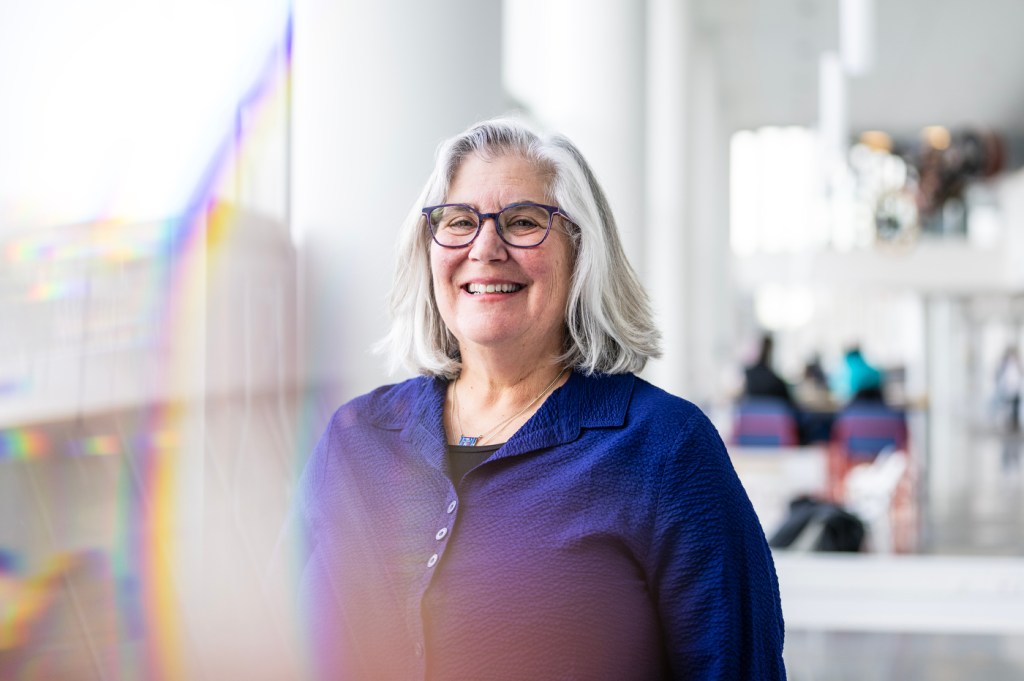Can this strategic plan promote better
well-being for people who suffer from psychosis?
Alisa Lincoln helped develop one of the country’s first statewide strategic plans to address early psychosis. A psychiatric journal recently published an article on the community-driven process.

Psychosis is a little understood mental health condition whose sufferers often face stigmatization and marginalization.
At Northeastern University, professor Alisa K. Lincoln is helping Massachusetts lead the way in raising awareness about psychosis, reducing its stigma and ensuring those affected can access appropriate help as early as possible.
A paper published in Psychiatry Services last month describes how Lincoln and others worked with community members and mental health experts to develop what is one of the nation’s first statewide strategic plans for early psychosis.
“We forget about prevention all the time. We focus on treatment, but there’s a lot of amazing and powerful work that shows that prevention and early identification really matter,” says Lincoln, director of Northeastern’s Institute for Health Equity and Social Justice Research.
People can have symptoms of psychosis in association with depression, anxiety, PTSD, substance abuse and other conditions, Lincoln says.
“There’s just a tremendous amount of misinformation and lack of knowledge about people’s experiences of psychosis, even though psychotic thought processes or symptoms are more common than we think,” she says.
Plan addresses marginalized communities
The strategic plan also addresses the experiences of Black, Indigenous and people of color and members of the LGTBQ community, and the barriers they face in getting care.
“We know from the literature that experiences of discrimination and marginalization and social exclusion can contribute to psychotic symptoms,” Lincoln says.
“So at a population level we know that people who experience racism and discrimination have higher rates of psychosis,” she says.
“That does not mean they are diagnosed more often or receive appropriate treatment more often,” Lincoln says. “There is evidence that there are strong racial inequities in access to quality treatment and support for recovery.”
Public awareness campaign
Lincoln’s paper, published in November in Psychiatry Services describes working with the Massachusetts Department of Mental Health and others on recommendations for a public awareness campaign around the symptoms of psychosis.
The strategic plan also calls for a statewide triage system to ensure rapid delivery of care.
The plan promotes training of community members including police, school employees and EMTs in the early signs and symptoms of psychosis and the development of early psychosis treatment teams to deliver high-quality, evidence-based care.
The goals outlined in the strategic plan, which is available online, developed from focus groups involving young adults who have experienced psychosis and their families, as well as panels of international experts in mental health.
“What was exciting about the way Massachusetts approached it is they really wanted to think about it as a community-driven plan,” Lincoln says.
What is psychosis?
The term psychosis is used to describe a mental health condition in which sufferers experience a break with reality and may have difficulty recognizing what is real and what is not, according to the National Institute of Mental Health.
They may have auditory or visual hallucinations and experience delusions, confused thinking, disordered speaking, suspiciousness or emotional changes such as social withdrawal.
Often beginning in young adulthood, psychosis develops in 15 to 100 people out of 100,000 people each year, according to the NIMH.
Stigma can be a barrier
Editor’s Picks
Stigma can also be a barrier to seeking care, which is why the education of community members, health professionals, educators and people across sectors around psychosis is so important, Lincoln says.
“Oftentimes when groups do programming on mental health, they’ll focus on anxiety and depression,” to the exclusion of psychosis, she says.
A big part of the strategic plan is promoting understanding through “a wide range of mental health education and intervention programs and focus on recovery.”
Early intervention is key, Lincoln says. It’s important to work “with folks early before things develop into more serious or challenging problems.”











